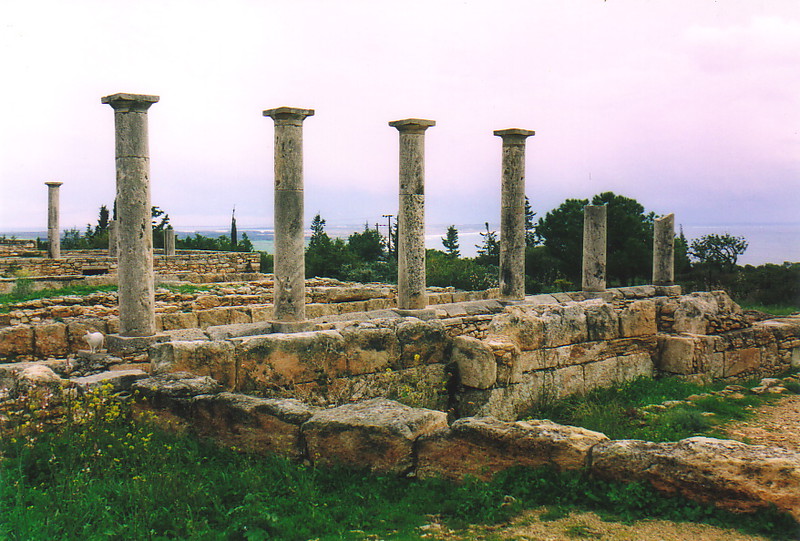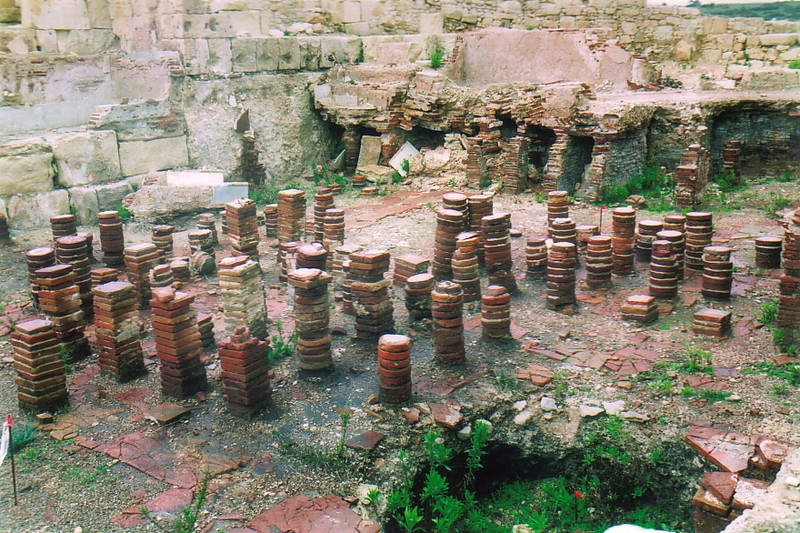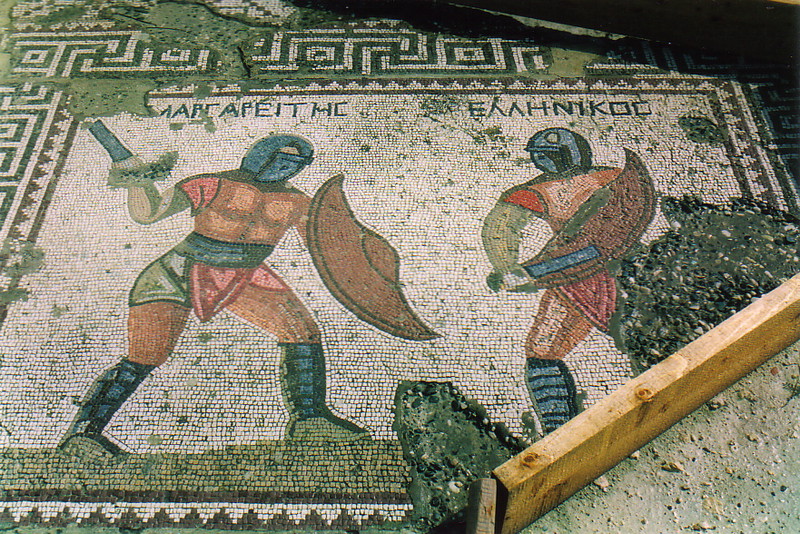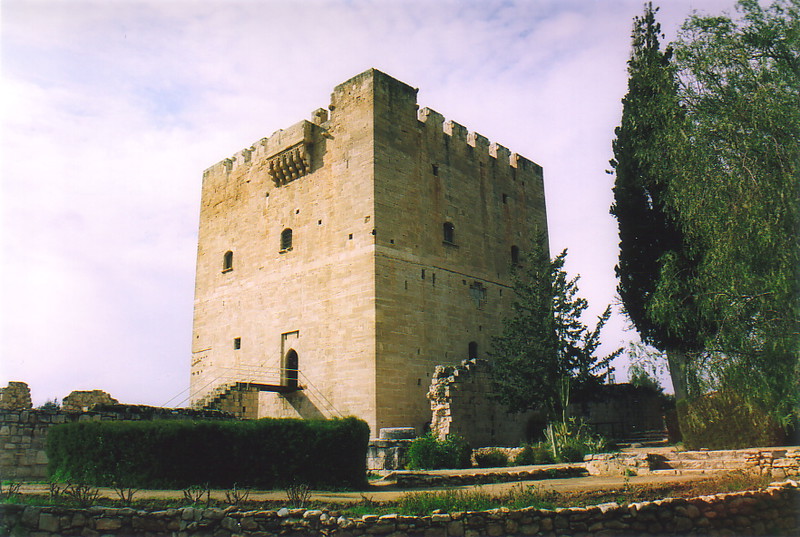
Tuesday 25th awoke to weather that mirrored the inside of my head after the evening's drinking at Perry's; one minute it was dark and blustery, and the next minute the clouds had lifted and the sun was peeking through, but it couldn't make up its mind what to do. Nor could we, but we figured we might as well drive over to the ruins of Kourion, even if we risked getting caught in another snow storm.
The reason for our caution was that the ancient city of Kourion was built on a massively exposed headland overlooking the southern coast of Cyprus, and it's not the kind of place you want to be stuck if the weather turns; but fortune favours the brave, so we set out along the winding coast road, ready for an archaeological experience that the guidebooks uniformly raved about.

To get us in the mood, we tuned the radio in to BFBS Radio One, the premier channel of the British Forces Broadcasting Service. Kourion is inside the perimeter of the Akrotiri Sovereign Base, one of the three parts of Cyprus that the British kept as part of the independence deal in 1960, and although these areas are technically British soil, and military soil at that, you can merrily drive across the bases without fear of having a gun poked into your stomach. Not only that, but the British broadcast radio programmes to keep their armed employees happy during their leisure time, and BFBS Radio churns out the usual happy-clappy entertainment that you get on most pop music channels back home, but with dedications going out to soldiers and their families, and announcements about fun social activities happening in the various bases. It's like normal radio, but then again it's not; I got the feeling that ringing in to request a medley of Give Peace a Chance, War (What is it Good For?), Billy Don't Be a Hero and Seasons in the Sun would be met by the same stony lack of humour that you get from airport security staff when cracking a wise one about the bomb in your bag.

Despite having my spirits lifted by the BFBS, Kourion unfortunately turned out to be less fascinating than I'd hoped, though not because of inclement weather; luckily the sun actually came out as we explored the ruins, but even this couldn't shake the feeling that whereas Pafos is home to some stunningly preserved works of true genius, Kourion suffered so much destruction in the earthquake of 365 AD that it's only of interest to the experts. What's left is genuinely ruined, and it's made worse where the archaeologists have tried to reconstruct what they thought was there; columns that clearly don't match each other have been placed in rows that don't work, some small sections have been stuck together so they look practically brand new, and what is left sometimes feels more like the aftermath of a modern developmental disaster than an ancient city (though, given the history of rebuilding in Kourion, it's a little unfair to expect anything else). Here, more than anywhere, I would say that visiting with either a human guide or a dedicated guidebook is better than aimlessly wandering through the wind armed with only a few pages from a guidebook to Cyprus, but even without an expert in tow it's worth the detour... it's just not as impressive as Pafos.

Kolossi Castle, just down the road, is a much more intact piece of architecture, but it's a lot more modern too, having been initially built by the knights of the Crusades back in 1210, with various collapses and restorations ever since. It's basically a three-storey castle keep, bleakly empty inside but atmospheric nonetheless, and you can climb to the top for a nice little view over the surrounding land. It's nothing mind-blowing, but it's strangely appropriate given the proximity of the heart of the Akrotiri base, a set of giant-sized antennae that are all pointed at the Middle East, and under which you can drive but not stop. Photographs in this area are also a no-no, as is any kind of exploration on foot, which is a shame because the salt lake to the north of the military town is apparently a haven for migratory birds, and at this time of year is home to flocks of flamingos, a bird I've long wanted to see. Unfortunately I thought it a little risky to be flipping out the binoculars right under the British listening post for the Gulf, so I couldn't confirm whether those white dots on the lake actually were flamingo.
I like to think they were, though.